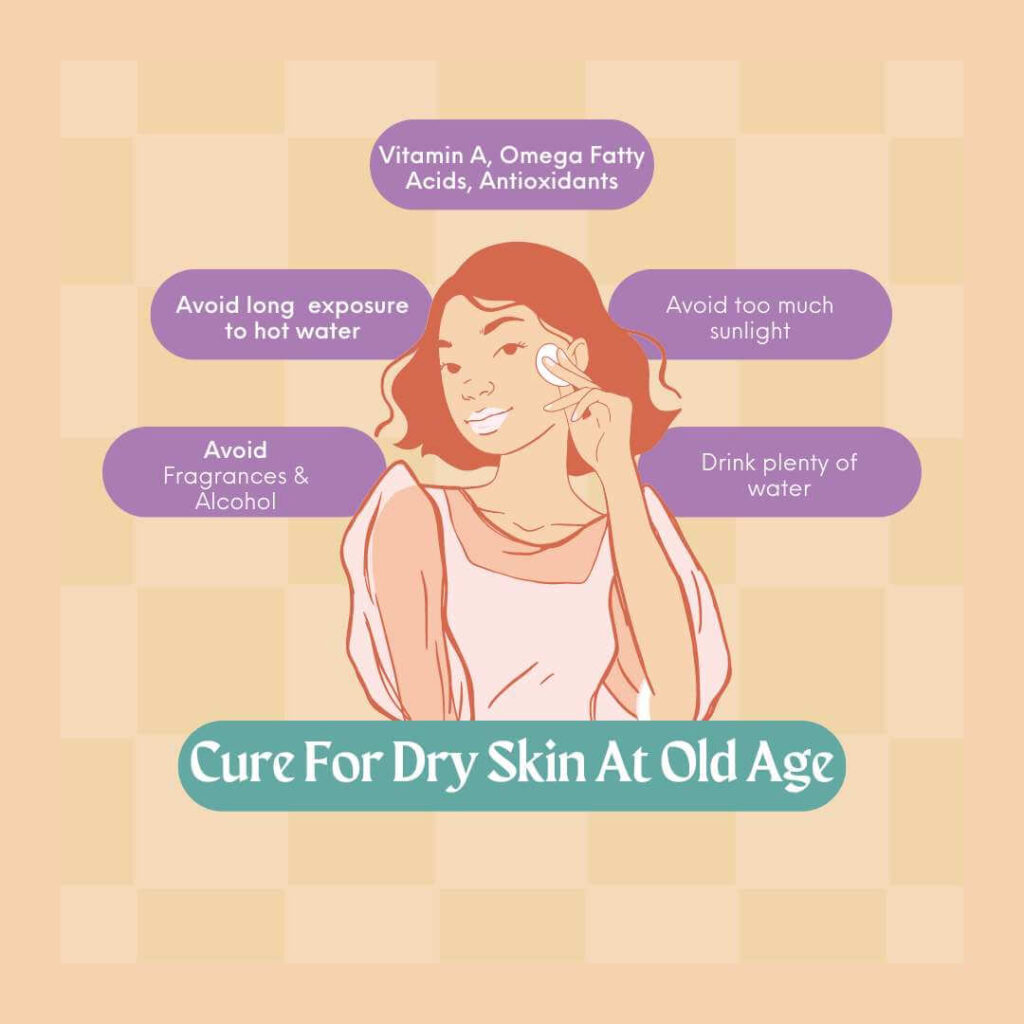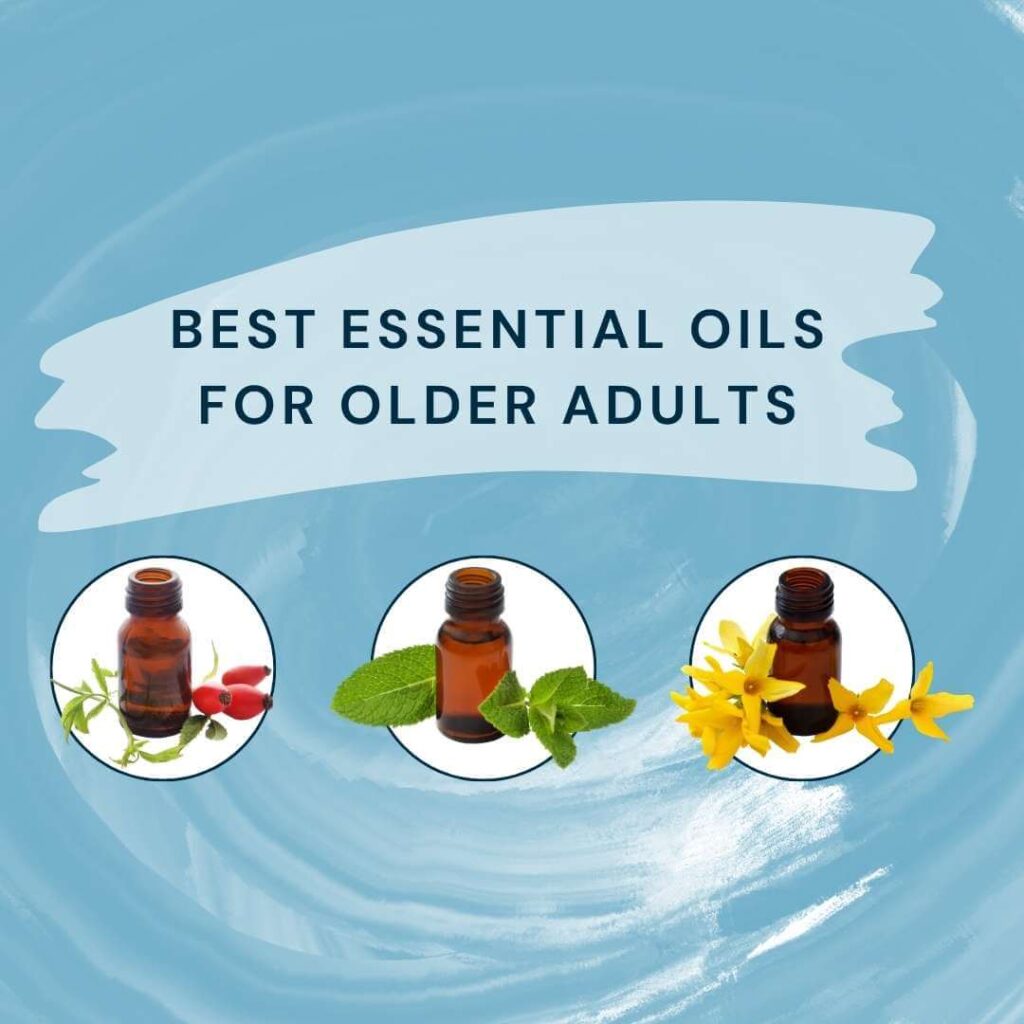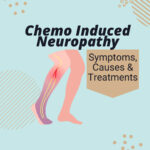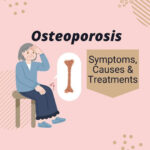Dry skin, also known as Xerosis, is a common issue that affects many older adults. As people age, their skin undergoes natural changes that can lead to increased dryness, discomfort and skin disease. From decreased oil production, reduced hydration levels, and lower cell regeneration, managing dry skin in old age is crucial for maintaining overall skin health reduce wrinkles, fine lines or flaky skin and maintain a healthy skin barrier.
The cure for dry skin old age is not a medication, but lifestyle adjustments. By taking proactive steps to prevent and address dryness, individuals can improve the condition of their skin and minimize the risk of complications.

What causes dry skin in older adults?
As we age, our skin undergoes various changes that can lead to dryness and discomfort. There are several factors that contribute to this condition.
1. Aging reduces the production of natural oils
As we get older, our bodies produce fewer natural oils, which are essential for keeping the skin moisturized. These oils act as a protective barrier, preventing moisture loss and maintaining hydration levels in the skin. However, with reduced oil production, the skin becomes more prone to dryness and flakiness.
2. Decreased cell renewal
Another factor that contributes to dryness in older adults is decreased cell renewal. Our skin cells constantly regenerate themselves, but this process slows down as we age. The slower cell turnover results in a buildup of dead skin cells on the surface, making the skin appear dull and rough. This accumulation also hinders the absorption of moisturizers or other hydrating products, exacerbating dryness.
3. Environmental factors
Environmental factors play a significant role in causing dry skin in seniors. Low humidity levels can strip moisture from the air and subsequently from our skin. Dry climates or indoor heating during winter months can further deplete moisture levels in the environment, leading to increased dryness in older adults’ skin. Prolonged exposure to harmful UV rays without proper protection can damage the outermost layer of the skin and disrupt its ability to retain moisture effectively.
4. Frequent bathing or hot showers
While personal hygiene is crucial for overall health, excessive bathing or using hot water can actually worsen dryness in older adults’ skin. Prolonged contact with water washes away the natural oils and lipids that keep the skin hydrated. Moreover, hot water can further strip the skin of its moisture, leaving it feeling tight and parched. It is advisable for seniors to opt for a lukewarm shower or bath and limit their duration to prevent excessive drying of the skin.
5. Certain medical conditions
Dry skin can also be a symptom of underlying medical conditions that are prevalent among older adults. Diabetes, for instance, affects blood circulation and can lead to reduced oil production in the skin. As a result, a patient with diabetes is more prone to developing dry and itchy skin. Similarly, hypothyroidism, a condition characterized by an underactive thyroid gland, can disrupt the balance of hormones responsible for maintaining healthy skin hydration levels.
6. Nutrient deficiencies or dehydration
Nutrition plays a vital role in maintaining overall health, including the condition of our skin. Seniors who have nutrient deficiencies may experience dryness as their bodies lack essential vitamins and minerals necessary for optimal skin function. Dehydration can contribute to dryness as well. Insufficient water intake affects not only internal hydration but also external moisture levels in the body. It is crucial for older adults to ensure they consume an adequate amount of water daily and maintain a balanced diet rich in nutrients beneficial for their skin’s health.
Top tips from dermatologists for relieving dry skin
- Use mild, fragrance-free cleansers to avoid further drying out the skin. Harsh soaps and cleansers with strong fragrances can disrupt the skin’s moisture barrier, leading to increased dryness and irritation. A doctor would recommend looking for gentle cleansers specifically formulated for dry or sensitive skin types.
- Vitamin A plays a crucial role in maintaining healthy skin. It helps promote cell turnover and stimulates collagen production, which improves the overall texture and appearance of the skin. Including foods rich in vitamin A such as carrots, sweet potatoes, spinach, and apricots in your diet can provide your body with this essential nutrient. Using skincare products containing retinoids (a form of vitamin A) can help improve dryness and enhance skin hydration.
- Apply a moisturizing cream immediately after bathing to lock in moisture. When you bathe or shower, your pores open up due to warm water exposure. Sealing in that moisture with a good moisturizer helps prevent evaporation and keeps your skin hydrated for longer periods. Opt for moisturizers containing ingredients like hyaluronic acid or ceramides for added hydration.
- Avoid long exposure to hot water, as it can worsen dryness. Hot water strips away natural oils from the skin and disrupts its moisture balance. Opt for lukewarm water instead and limit your bathing time to no more than 10 minutes. This helps prevent further drying out of your skin and allows it to retain its natural oils, keeping it hydrated.
- Use cleaning products with low alkaline rating. Dermatologists recommend using products with a low alkaline rating and a pH level of around 5. These products are gentle on the skin’s acid mantle, which is responsible for maintaining optimal hydration levels.
- Avoid products with perfumes or alcohol. Fragrances can be irritating to sensitive skin types and may exacerbate dryness and inflammation.
How to Boost Skin Hydration
Drink Plenty of Water
One of the simplest and most effective ways to boost skin hydration is by drinking an adequate amount of water daily. Our bodies are made up of about 60% water, and staying hydrated is crucial for maintaining healthy skin.
Use a Humidifier at Home
If you live in a dry climate or spend a lot of time in air-conditioned environments, using a humidifier at home can help increase moisture levels in the air. Dry air tends to suck the moisture out of your skin, leading to dryness and irritation. By adding humidity back into the air with a humidifier, you create a more favorable environment for your skin to retain moisture.
Include Foods Rich in Omega Fatty Acids
What you eat plays a significant role in the health and hydration of your skin. Including foods rich in omega fatty acids can promote healthy skin hydration. Omega-3 and omega-6 fatty acids are essential for maintaining the integrity of your skin’s natural barrier function. They help your skin produce oil, which acts as a protective layer that locks in moisture. Foods like salmon, flaxseeds, chia seeds, and walnuts are excellent sources of these beneficial fatty acids.
Eat Foods with Antioxidants
Antioxidants are powerful compounds that protect our cells from damage caused by free radicals and thus support maintaining hydrated and youthful-looking skin. They help fight off oxidative stress that can lead to dryness and premature aging. Incorporating antioxidant-rich foods into your diet is great for boosting skin hydration. Some examples include berries (such as blueberries and strawberries), dark leafy greens (like spinach and kale), and green tea.
Limit Alcohol and Caffeine Consumption
Excessive alcohol and caffeine consumption can dehydrate your body, including your skin. Both alcohol and caffeine act as diuretics, meaning they increase urine production and can lead to fluid loss. To maintain optimal skin hydration, it’s important for patients with dry skin to moderate their intake of these beverages and ensure they’re replenishing lost fluids with water.
Avoid Prolonged Exposure to Direct Sunlight
Sun exposure is one of the leading causes of dry skin, especially in older age. Prolonged exposure to direct sunlight can damage the skin’s natural moisture barrier, leading to water loss, wrinkles, and even sunburns. It’s crucial to protect your skin from harmful UV rays by wearing sunscreen with a high SPF, even around your lips with a lip balm. Patients should also seek shade during peak sun hours, and wear protective clothing like hats and sunglasses. Taking these precautions will help maintain skin hydration levels while reducing the risk of sun damage and other skin conditions.
Is there a cure for dry skin at old age?
Yes, there are many steps you can take to achieve a more healthy and hydrated skin condition even in old age. A dermatologist would recommend adopting a skin care routine that focuses on moisturization and hydration. This includes using gentle cleansers, applying moisturizers with ingredients like hyaluronic acid and ceramides, and avoiding hot showers or baths that can strip away natural oils. Staying hydrated by drinking plenty of water throughout the day can help improve overall skin health.
FAQs
What are some common causes of dry skin in older adults?
Dry skin in older adults can be caused by factors such as decreased oil production, hormonal changes, frequent bathing with hot water, harsh soaps or cleansers, low humidity levels, certain medications, and underlying medical conditions.
How often should I moisturize my dry skin?
It is recommended to moisturize dry skin at least twice a day – once in the morning after cleansing and again before bed. However, if your skin feels excessively dry or tight throughout the day, you may apply moisturizer as needed.
Can diet affect my skin’s hydration?
Yes! A well-balanced diet rich in fruits and vegetables provides essential vitamins and antioxidants that contribute to overall skin health. Omega-3 fatty acids found in foods like salmon or flaxseed oil can also help improve hydration levels.
Are there any specific ingredients I should look for in moisturizers?
Look for moisturizers that contain ingredients like hyaluronic acid, ceramides, glycerin, shea butter, or petrolatum. These ingredients help attract and retain moisture in the skin.
Can I prevent dry skin by using a humidifier?
Yes! Using a humidifier can add moisture to the air and help combat dryness caused by low humidity levels. Place it in your bedroom or other frequently used areas for optimal results.
References
https://www.nia.nih.gov/health/skin-care-and-aging
https://www.nia.nih.gov/health/infographics/tips-healthier-skin-you-age
You May Also Like
- How To Improve Gut Microbiome – 26 May 2024
- Chemo neuropathy treatment: What to do? – 19 May 2024
- How to Prevent Osteoporosis: Effective Strategies & Simple Steps – 28 December 2023








